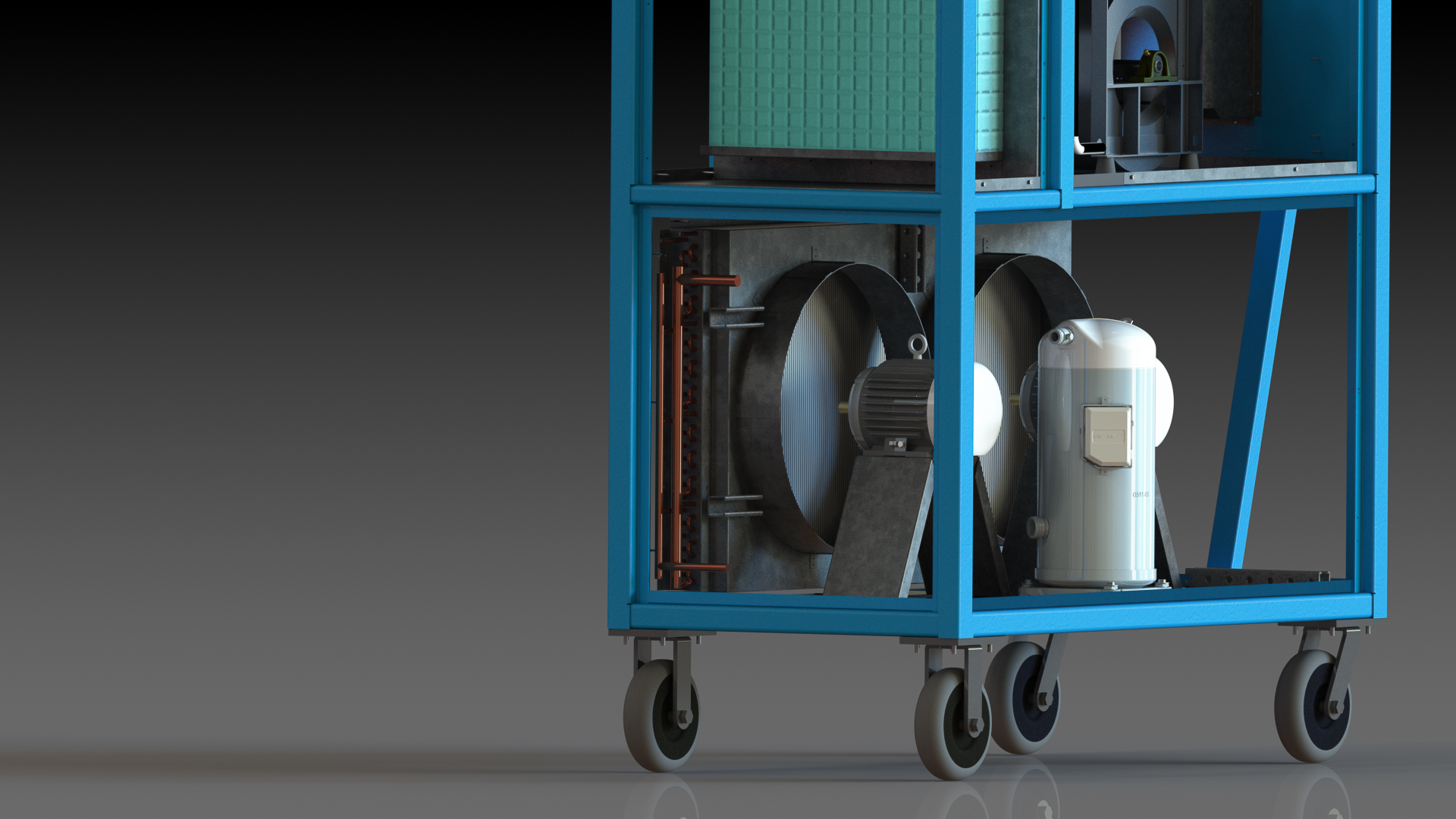Process fluids play a crucial role in a chiller, as they’re responsible for transferring heat from one place to another, keeping your machinery and equipment cool, safe, and running efficiently. The right chiller fluid can make a significant difference in the performance and longevity of your chiller.
Understanding what chiller fluids to use in your process is essential to ensure they operate correctly. With over 50 years of experience designing and developing industrial chillers, Scientific Systems are the go-to folks for finding the best chiller fluid for your customized solution, including chillers that can chill down to -130 degrees Fahrenheit. Here are the five common chiller fluids used in chiller applications.
[Related: What is a Chiller?]
1. The Most Common Chiller Fluid: Water
Water is the most common process chiller fluid due to its availability, cost-effectiveness, and heat transfer capabilities. It’s ideal for applications with a relatively constant cooling load, such as food processing, pharmaceutical storage, plastic and rubber processing, and more.
While water is the standard chiller fluid, it may not be suitable for use in very low-temperature applications or where the risk of freezing is high. Also, it is important to understand if you use water, you must ensure it is not high in mineral content, as it can cause corrosion or clog fluid channels.
2. The High-Temperature Chiller Fluid: Oil
Oil-based process chiller fluids are ideal for high-temperature applications, such as metalworking, plastics processing, and chemical manufacturing. Its high thermal stability allows the chiller to operate at temperatures where water would evaporate or freeze. However, oil-based fluids can be more expensive and require additional maintenance due to potential fouling and degradation.
If you need a custom chiller with an oil-based chiller fluid designed to handle oil entering the process at higher temperatures, contact Scientific Systems. We offer custom solutions that provide efficient cooling for high-temperature applications and chillers that chill applications down to -130 degrees Fahrenheit, ensuring your operations run smoothly. Request more information or contact us today to learn more about custom solutions.
3. The Low-Temperature Chiller Fluid: Glycol
Glycol-based chiller fluids, such as ethylene glycol and propylene glycol, are popular for applications where low temperatures are required, or the risk of freezing is high, especially if the chiller is outdoors. Glycol mixtures offer freeze protection and operate at temperatures below -60°F. They are commonly used in food and beverage processing, pharmaceutical manufacturing, and cold storage facilities.
4. The High-Performance Chiller Fluid: Dynalene HC-40
Dynalene HC-40 is a high-performance process chiller fluid designed for low-temperature applications, offering excellent heat transfer properties and a wide operating range from -58°F to 425°F. It’s ideal for the aerospace, electronics, and semiconductor manufacturing industries. With its non-toxic and non-hazardous properties, Dynalene HC-40 is an environmentally friendly choice.
5. The High-Efficiency Option: DX Heat Transfer
Direct Expansion (DX) heat transfer uses refrigerant as the process chiller fluid, offering high efficiency and excellent heat transfer capabilities. DX systems are well-suited for limited space applications, as they require less equipment than other chiller types. They are commonly used in commercial buildings, data centers, and industrial facilities.
[Related: What to Consider When Choosing an Industrial Chiller]
Receive a Custom Chiller for Your Operations When You Contact Scientific Systems
Choosing the correct process chiller fluid for your industrial chiller is crucial for optimal performance, efficiency, and reliability. Whether you require water, oil, glycol, Dynalene HC-40, DX heat transfer, or a chiller that cools application down to -150 degrees Fahrenheit, Scientific Systems is the expert you can trust.
With over 50 years of experience designing and developing industrial chillers, you can rely on their knowledge to help you make the best decision for your application. Don’t hesitate to contact Scientific Systems today to discuss your chiller requirements and explore their wide range of solutions tailored to your needs.


